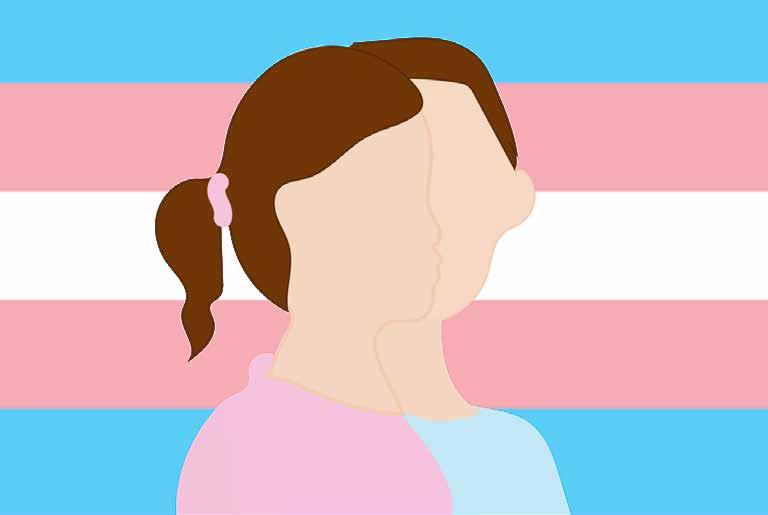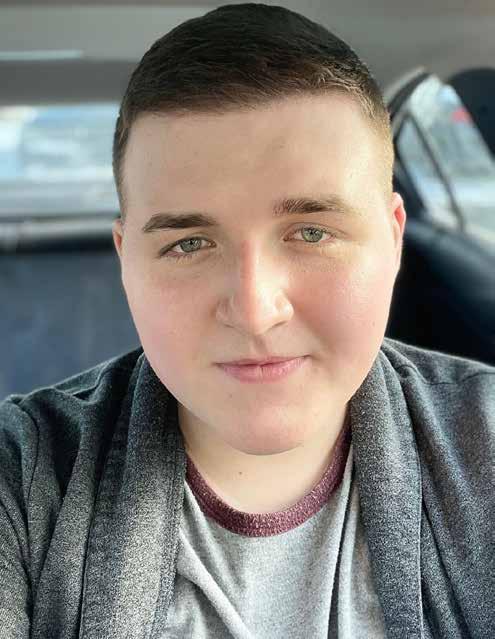
2 minute read
Letting children transition isn’t ruining their life
By J. Gerantonis
REBECCA STREEF GAZETTE
Some children start identifying as a gender different than the one they were assigned at birth as early as three years old.
Although they may not have the language to know what being transgender means, they still know they aren’t their assigned gender.
Rebekah Bruesehoff is a 12-year-old transgender girl. From the time she was three, she would avoid anything that was considered “for boys” and by age seven, her mental health was declining so fast that she was talking about ending her life.
At the same time, she was consistently telling her parents that she was a girl.
After allowing her to socially transition at the age of eight her parents noticed a significant change in her overall mood.
Allowing children to socially transition is one aspect of transitioning as a child, often including the changing of pronouns and names. But, another potential aspect of a child’s transition is the use of hormone blockers.
Hormone blockers are given to children and teens who have yet to go through most of puberty. They will stop or delay the release of estrogen or testosterone to help elevate gender dysphoria — the stress that is caused by the mismatch between one’s assigned sex and gender identity.
Hormone blockers can prevent the development of breasts or a deeper voice, which can allow trans kids to fit in better with people in their class and not be pointed out as the “different” boy or girl.
The only thing that can change when a child is allowed to take hormone blockers is an improved sense of confidence around themselves and others.
A lot of people see children identifying as trans as a phase that they will eventually outgrow. Although there are no recorded global statistics, the National Health Service in the UK reported less than 1 per cent of their clients regretting transitioning.
Even if this does occur with a young person on hormone blockers, these blockers are an easily reversible process. Once blockers are stopped, the body’s natural hormone will take over and will begin developing its associated characteristics.
Hormone replacement therapy is often the next step after hormone blockers, which does have some irreversible components. However, most children aren’t put through this process, as cisgender kids also haven’t gone through puberty yet, either.
In order to go through the process of either hormone blockers or hormone replacement therapy, most countries need a gender dysphoria diagnosis from a licensed professional. This can require many hours for consultations and waiting time.
Medically transitioning is not a process taken lightly by professionals, and it shouldn’t be, involving in-depth conversations with parents and the child. It isn’t something that is given out to anyone who requests at the snap of a finger.
Beginning to transition at an earlier age can give trans individuals a greater feeling of overall satisfaction with themselves and life in general. Both socially transitioning and early stages of medically transitioning are reversible processes if it comes down to it, so why not let your child live as the person they want to be?
Parents allowing their children to transition is not encouraging “trans behaviour,” but rather letting them be happy and true to themselves.






